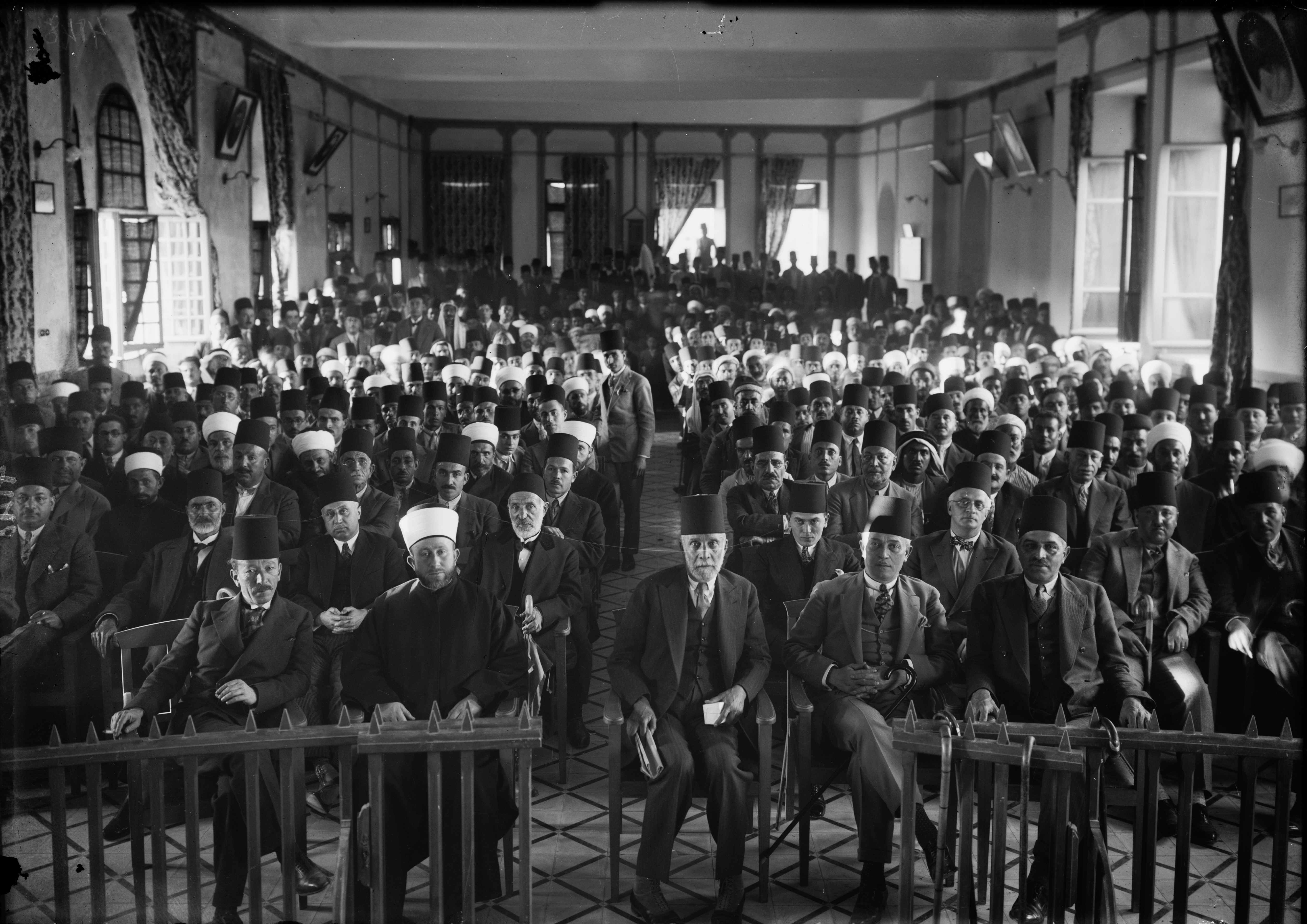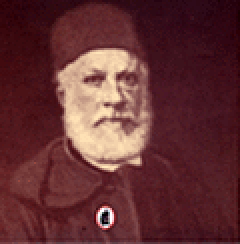|
Wasif Jawhariyyeh
Wasif Jawhariyyeh (; 14 January 1897 – 1972) was a Palestinian people, Palestinian composer, oud player, poet and chronicler. He is known for his memoirs, ''The Diaries of Wasif Jawhariyyeh'', that spans over six decades from 1904 to 1968, covering Jerusalem's turbulent modern history, including four regimes and five wars. British Member of Parliament (United Kingdom), Member of Parliament Layla Moran is his great-granddaughter. Biography Early life Wasif Jawhariyyeh was born to Jiryis and Hilana Barakat on 14 January 1897 in Jerusalem. The Jawhariyyeh's practised Eastern Orthodox Christianity. His father was an active member of their community, as a member of Jerusalem's municipal council and served for a time as tax assessor. He would later pursue a career as a silk farmer, cafe proprietor, skilled icon maker. He also was an amateur musician. His father, Jiryis (Girgis), was the mukhtar (other), mukhtar of the Eastern Orthodox community in the Old City (188 ... [...More Info...] [...Related Items...] OR: [Wikipedia] [Google] [Baidu] |
Salim Al-Husseini
Salim Effendi al-Husayni () (unknown birth–1908) was List of mayors of Jerusalem, Mayor of Jerusalem from 1882 to 1897. Hussein al-Husayni and Musa al-Husayni, Mousa Kazim al-Husayni, later mayors of the city, were his sons. He was a member of the Jerusalem Council and belonged to the prominent al-Husayni clan of Jerusalem. He built a palace in the city, which his granddaughter Hind al-Husseini later developed into the Dar al-Tifl Institution, which sheltered and educated orphaned children. Al-Husayni died in 1908 and is buried in the neighborhood of Sheikh Jarrah, near the American Colony Hotel. Palestinian Academic Society for the Study of International Affairs. (PASSIA). He is praised in ''Wasif_Jawhariyyeh#The Diaries of Wasif Jawhariyyeh, The Diaries of Wasif Jawhariyyeh'', a memoir of a Jerusalem resident under his mayorship. ... [...More Info...] [...Related Items...] OR: [Wikipedia] [Google] [Baidu] |
Mandatory Palestine
Mandatory Palestine was a British Empire, British geopolitical entity that existed between 1920 and 1948 in the Palestine (region), region of Palestine, and after 1922, under the terms of the League of Nations's Mandate for Palestine. After an Arab Revolt, Arab uprising against the Ottoman Empire during the First World War in 1916, British Empire, British Egyptian Expeditionary Force, forces drove Ottoman Empire, Ottoman forces out of the Levant. The United Kingdom had agreed in the McMahon–Hussein Correspondence that it would honour Arab independence in case of a revolt but, in the end, the United Kingdom and French Third Republic, France divided what had been Ottoman Syria under the Sykes–Picot Agreement—an act of betrayal in the eyes of the Arabs. Another issue was the Balfour Declaration of 1917, in which Britain promised its support for the establishment of a Homeland for the Jewish people, Jewish "national home" in Palestine. Mandatory Palestine was then establishe ... [...More Info...] [...Related Items...] OR: [Wikipedia] [Google] [Baidu] |
1897 Births
Events January * January 2 – The International Alpha Omicron Pi sorority is founded, in New York City. * January 4 – A British force is ambushed by Chief Ologbosere, son-in-law of the ruler. This leads to a punitive expedition against Benin. * January 7 – A cyclone destroys Darwin, Australia. * January 8 – Lady Flora Shaw, future wife of Governor General Lord Lugard, officially proposes the name "Nigeria" in a newspaper contest, to be given to the British Niger Coast Protectorate. * January 22 – In this date's issue of the journal ''Engineering'', the word ''computer'' is first used to refer to a mechanical calculation device. * January 31 – The Czechoslovak Trade Union Association is founded in Prague. February * February 10 – Freedom of religion is proclaimed in Madagascar. * February 16 – The French conquer the island of Raiatea and capture the rebel chief Teraupo'o, ending the Leeward Islands War and brin ... [...More Info...] [...Related Items...] OR: [Wikipedia] [Google] [Baidu] |
Writers From Jerusalem
A writer is a person who uses written words in different writing styles, genres and techniques to communicate ideas, to inspire feelings and emotions, or to entertain. Writers may develop different forms of writing such as novels, short stories, monographs, travelogues, plays, screenplays, teleplays, songs, and essays as well as reports, educational material, and news articles that may be of interest to the general public. Writers' works are nowadays published across a wide range of media. Skilled writers who are able to use language to express ideas well, often contribute significantly to the cultural content of a society. The term "writer" is also used elsewhere in the arts and music, such as songwriter or a screenwriter, but also a stand-alone "writer" typically refers to the creation of written language. Some writers work from an oral tradition. Writers can produce material across a number of genres, fictional or non-fictional. Other writers use multiple media such a ... [...More Info...] [...Related Items...] OR: [Wikipedia] [Google] [Baidu] |
Arab People In Mandatory Palestine
Arabs (, , ; , , ) are an ethnic group mainly inhabiting the Arab world in West Asia and North Africa. A significant Arab diaspora is present in various parts of the world. Arabs have been in the Fertile Crescent for thousands of years. In the 9th century BCE, the Assyrians made written references to Arabs as inhabitants of the Levant, Mesopotamia, and Arabia. Throughout the Ancient Near East, Arabs established influential civilizations starting from 3000 BCE onwards, such as Dilmun, Gerrha, and Magan, playing a vital role in trade between Mesopotamia, and the Mediterranean. Other prominent tribes include Midian, ʿĀd, and Thamud mentioned in the Bible and Quran. Later, in 900 BCE, the Qedarites enjoyed close relations with the nearby Canaanite and Aramaean states, and their territory extended from Lower Egypt to the Southern Levant. From 1200 BCE to 110 BCE, powerful kingdoms emerged such as Saba, Lihyan, Minaean, Qataban, Hadhramaut, Awsan, and Homerite emerged in ... [...More Info...] [...Related Items...] OR: [Wikipedia] [Google] [Baidu] |
University Of California Press
The University of California Press, otherwise known as UC Press, is a publishing house associated with the University of California that engages in academic publishing. It was founded in 1893 to publish scholarly and scientific works by faculty of the University of California, established 25 years earlier in 1868. As the publishing arm of the University of California system, the press publishes over 250 new books and almost four dozen multi-issue journals annually, in the humanities, social sciences, and natural sciences, and maintains approximately 4,000 book titles in print. It is also the digital publisher of Collabra and Luminos open access (OA) initiatives. The press has its administrative office in downtown Oakland, California, an editorial branch office in Los Angeles, and a sales office in New York City, New York, and distributes through marketing offices in Great Britain, Asia, Australia, and Latin America. A Board consisting of senior officers of the University of Cali ... [...More Info...] [...Related Items...] OR: [Wikipedia] [Google] [Baidu] |
Ottoman Empire
The Ottoman Empire (), also called the Turkish Empire, was an empire, imperial realm that controlled much of Southeast Europe, West Asia, and North Africa from the 14th to early 20th centuries; it also controlled parts of southeastern Central Europe, between the early 16th and early 18th centuries. The empire emerged from a Anatolian beyliks, ''beylik'', or principality, founded in northwestern Anatolia in by the Turkoman (ethnonym), Turkoman tribal leader Osman I. His successors Ottoman wars in Europe, conquered much of Anatolia and expanded into the Balkans by the mid-14th century, transforming their petty kingdom into a transcontinental empire. The Ottomans ended the Byzantine Empire with the Fall of Constantinople, conquest of Constantinople in 1453 by Mehmed II. With its capital at History of Istanbul#Ottoman Empire, Constantinople (modern-day Istanbul) and control over a significant portion of the Mediterranean Basin, the Ottoman Empire was at the centre of interacti ... [...More Info...] [...Related Items...] OR: [Wikipedia] [Google] [Baidu] |
Cover Of The Storyteller Of Jerusalem
Cover or covers may refer to: Packaging * Another name for a lid * Cover (philately), generic term for envelope or package * Album cover, the front of the packaging * Book cover or magazine cover ** Book design ** Back cover copy, part of copywriting * CD and DVD cover, CD and DVD packaging * Smartphone cover, a mobile phone accessory that protects a mobile phone People * Cover (surname) Arts, entertainment, and media Music Albums ;Cover * ''Cover'' (Tom Verlaine album), 1984 * ''Cover'' (Joan as Policewoman album), 2009 ;Covered * ''Covered'' (Cold Chisel album), 2011 * ''Covered'' (Macy Gray album), 2012 * ''Covered'' (Robert Glasper album), 2015 ;Covers * ''Covers'' (Beni album), 2012 * ''Covers'' (Regine Velasquez album), 2004 * ''Covers'' (Placebo album), 2003 * ''Covers'' (Show of Hands album), 2000 * ''Covers'' (James Taylor album), 2008 * ''Covers'' (Fayray album), 2005 * ''Covers'' (Deftones album), 2011 * ''Covers'' (The Smithereens album), 2018 ... [...More Info...] [...Related Items...] OR: [Wikipedia] [Google] [Baidu] |
Al-nahda
The Nahda (, meaning 'the Awakening'), also referred to as the Arab Awakening or Arab Enlightenment, was a cultural movement that flourished in Arab-populated regions of the Ottoman Empire, notably in Egypt, Lebanon, Syria, and Tunisia, during the second half of the 19th century and the early 20th century. In traditional scholarship, the Nahda is seen as connected to the cultural shock brought on by Napoleon's invasion of Egypt in 1798, and the reformist drive of subsequent rulers such as Muhammad Ali of Egypt. However, more recent scholarship has shown the Nahda's cultural reform program to have been as "autogenetic" as it was Western-inspired, having been linked to the Tanzimat—the period of political reform within the Ottoman Empire which brought a constitutional order to Ottoman politics and engendered a new political class—as well as the later Young Turk Revolution, allowing proliferation of the press and other publications and internal changes in political economy a ... [...More Info...] [...Related Items...] OR: [Wikipedia] [Google] [Baidu] |
Gelvin
James L. Gelvin (born February 12, 1951) is an American scholar of Middle Eastern history. He has been a faculty member in the department of history at the University of California, Los Angeles (UCLA) since 1995 and has written extensively on the history of the modern Middle East, with particular emphasis on nationalism and the social and cultural history of the modern Middle East. Biography Gelvin earned his B.A. from Columbia University in 1983, M.A. from the School of International and Public Affairs of Columbia University in 1985, and Ph.D. from Harvard University in 1992. Before joining the faculty at UCLA, Gelvin taught at the Massachusetts Institute of Technology (MIT), Boston College, and Harvard University. He has been a fellow at the Woodrow Wilson International Center for Scholars (1999–2000) and the recipient of a U.C. President's Fellowship in the Humanities (1999–2000). In 2002–2003, he was Sheikh Zayed bin Sultan Al Nahyan Visiting professor of history at the ... [...More Info...] [...Related Items...] OR: [Wikipedia] [Google] [Baidu] |






